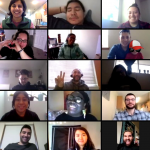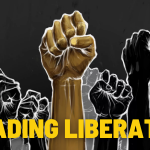
TAF Martinez Fellow Joana Chacon’s anti-racist book club has now become a global movement.
After the tragic death of Ahmaud Aubrey followed by George Floyd’s murder by American police, which gained global attention, Martinez Fellow Joana Chacon felt compelled to take action. She had enough of ingesting story after story of blatant injustice and wanted to find ways to be a part of the change. Little did she know, her passion would soon propel her into creating a national movement.
How it started
Chacon, who represents the TAF Martinez Fellowship’s first cohort, relocated from Seattle to Boston just one year ago, where she now teaches English at a local Boston public school. With racial tension mounting across the globe from mistreatment to blatant disregard for Black people’s humanity, Chacon joined millions in protest — taking to the streets in support of Black Lives Matter to denounce systemic and institutionalized dominance of white supremacist values.
“We were winding down from the school year, and I was so moved to do something lasting,” Chacon recounts. “I was protesting here in Boston, and I felt something needed to happen. As a teacher, I felt I needed to create sustainable change. I wanted to do more in leadership.”
That’s when she reached out to her friend for book recommendations — she knew she had some learning to do as an educator. She needed to first understand the deep-seated racist undercurrents within the education system and beyond, how to re-think her identity and role as a teacher, and most importantly, empower her students. Chacon ended up reading ‘We Want to Do More than Survive: Abolitionist Teaching and the Pursuit of Educational Freedom’ by Dr. Bettina Love, which catapulted her into actions that would reach educators across the world.
“I began reading Dr. Love’s book and realized the book was shifting the paradigm for me. It gave me another way of framing how to teach anti-racism,” Chacon says. “I realized I hadn’t been preparing my students with tools of civic engagement or sharing how their communities have engaged in the work.”
“I felt something needed to happen. As a teacher, I felt I needed to create sustainable change.”
JOANNA CHACON
English Teacher and TAF Martinez Fellow
Chacon wanted to empower her students more than ever. For her, adopting abolitionist teaching strategies to combat systemic oppression and racism within education was the long-sought-after answer. Yet, she also wanted to arm her students with practical ways of leading anti-racist efforts, too. That’s when she brought in a speaker from the National Organization for Women to educate the teens about youth activism related to racial injustice. While encouraging, the isolated lesson left students wondering why they only learn about activism and social justice issues through social media. Chacon encouraged her students to start challenging the current educational system now, by writing letters to their principal to demand they incorporate those topics into the school curriculum.
Book club turned conference
It became clear that the abolitionist teaching strategies she began to implement in her classroom needed to become central to all schools’ work. After pitching the book to teachers in other departments at her school, Chacon decided to start the Anti-Racism Educator Book Club to help educators learn about and apply the strategies in Dr. Love’s book.
The book club blew up.
After cross-posting the book club on various sites, Chacon received overwhelming interest from other educators and many other Martinez Fellows joined in to help organize it. Hoping to get Dr. Love’s expertise to help lead a discussion at an upcoming meeting, she reached out to the author through an email request noting that over 50 educators would participate in the book club meeting. To her surprise, Dr. Love accepted her invitation, and Chacon began to scramble to get the turn-out she’d promised.
A month after creating the book club, Chacon started to organize an anti-racist educators conference during the height of uncertainty — while being displaced from the classroom and a national uprising to challenge racial injustice.
Things were moving fast — almost too fast for Chacon. To gain members, she began advertising the club on social media, canvassed online by gathering emails from school websites, and enlisted the help of Martinez Fellows. Almost overnight, over 100 educators responded and people began offering volunteer support. Soon, she held the first book club meeting with participating educators from varying fields of study. Educators began showing transparency about anti-racism and abolitionist teaching, and it became clear that in order to address the many layers of racism within schools, Chacon needed to offer “different conversations for different content areas.”
A month after creating the book club, Chacon started to organize an anti-racist educators conference during the height of uncertainty — while being displaced from the classroom and a national uprising to challenge racial injustice.
Volunteers sprung into action — the group started reaching out to their contacts and created a GoFundMe page for their original goal of $2,500. Chacon emailed education leader Erin Jones to ask her to lead a conference session. When Jones accepted, Chacon and her team began booking other leaders, hoping to get the money to cover their booking fees. Chacon says she “went from $0 out in the hot sun with a donation table” to raising $40,000 almost overnight. The first funding source came from Newton Public Schools, which provided her efforts credibility. After that, more organizations like the Brookline Community Foundation and The Boston Fund began to pour resources into the conference. Several individual donors contributed, too.
Bringing together educators in abolitionist teaching practices
On August 8th, The 2020 National Educators Antiracist Conference launched with more than 6,000 educators representing all 50 states and 24 countries. The five-day virtual event featured musical guests representing different cultures and traditions, accessibility accommodations and interpreters, and dozens of volunteers live-tweeting and fielding questions. Racial justice and educational leaders from across the country, including some veteran TAF Martinez Fellows, led conference sessions centered around every subject matter imaginable to provide educators with ways to incorporate abolitionist teaching practices into their classrooms. The full-circle moment by far was when Dr. Love took the virtual stage to speak directly to educators.
I need to stop and thank @EdAntiRacism What an amazing group of educators committed to anti racism. What started off as a book club of my book grew into an international conference with over 8000 people. I am beyond humble and grateful. Thank you! @ATN_1863 #AbolitionistTeaching
— Bettina Love (@BLoveSoulPower) August 14, 2020
After the event, Dr. Love took to Twitter to comment on the conference, “I need to stop and thank @EdAntiRacism. What an amazing group of educators committed to anti-racism. What started off as a book club of my book grew into an international conference with over 8,000 people. I am beyond humbled and grateful.”
“This is in part due to the Martinez Foundation,” Chacon shared with her peer Martinez Fellows when discussing the conference. “This, in my mind, is the result of over a decade of building this group of educators up!”
In three months, Joana Chacon transformed her passion for creating equitable learning opportunities into a global movement that holds educators accountable when teaching students of color.
Following the success of her first conference, Chacon is now planning to expand her book club. What was initially exclusive to K-12 educators is now open to students as well. Additionally, she is also establishing the nonprofit organization, Educators for Anti-Racism, which encompasses the book club, conferences, and a new database of “anti-racism content for all content specialties and age-levels” to help educators incorporate abolitionist teaching within their curriculum. Chacon says the resource database of contributed class lessons should be ready for use within the next year and has set up a fundraising campaign to produce webinars and “commission BIPOC scholars to create antiracism resources for educators.”
It’s remarkable how quickly Chacon’s initial idea for a book club evolved. This type of activism among educators is central to what TAF Martinez Fellowship supports in its early-career educators of color. Teachers should be empowered to be leaders and agents of change, to use their own identities and experiences as educators of color to uplift their students and impress upon the broader educational community to resist systemic oppression.
To follow Chacon’s work, visit https://www.edantiracism.com/.





